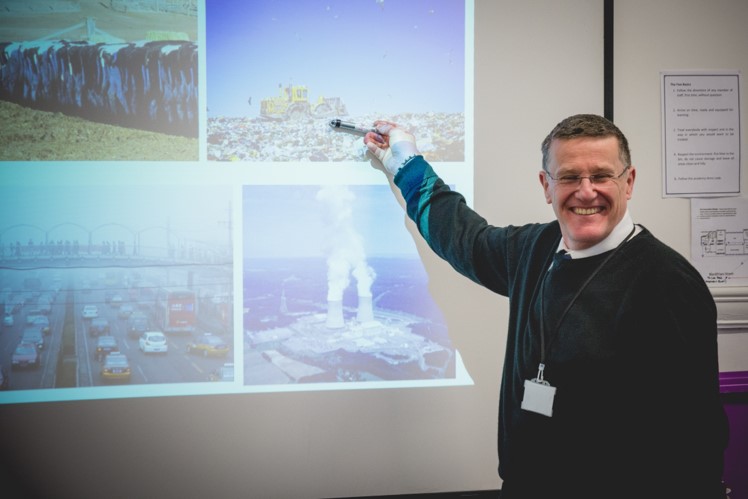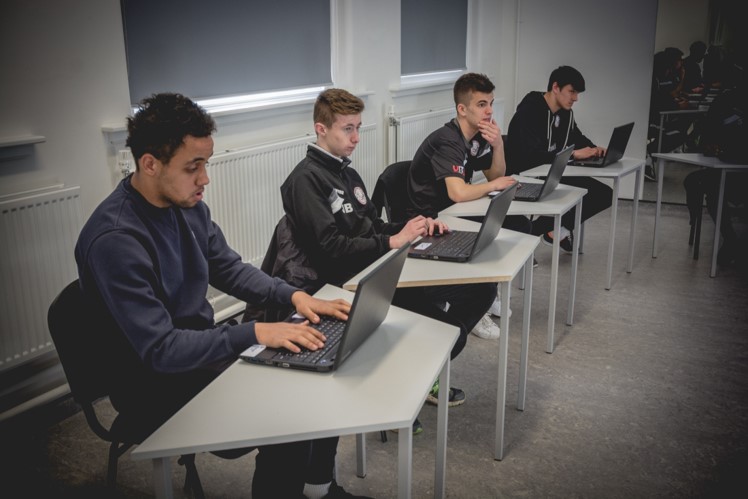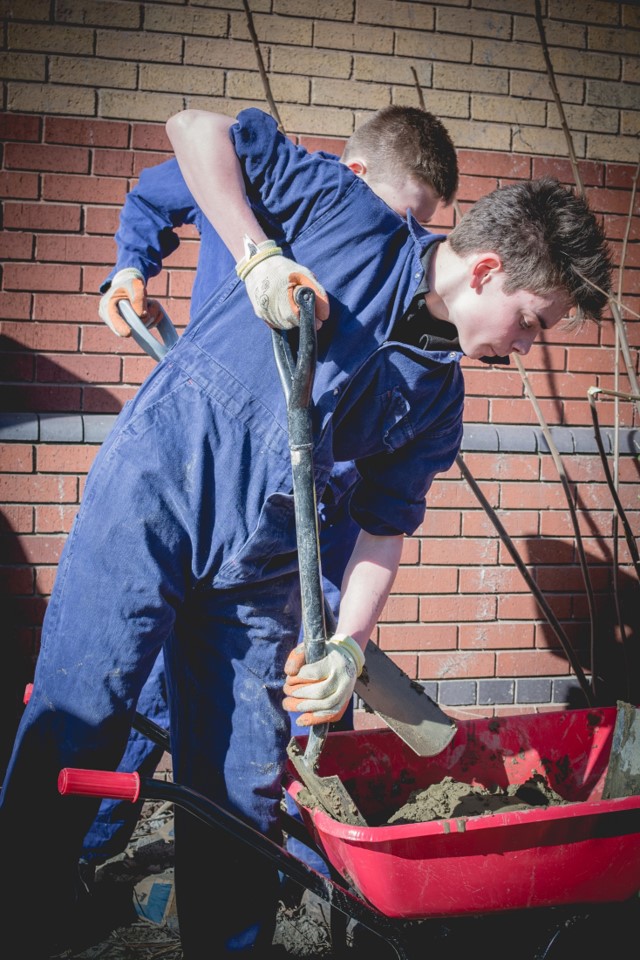Early in 1992, Herefordshire secondary school head teachers and college principals unanimously accepted the Coopers and Lybrand recommendations to form a co-operative within the legal framework of an Industrial and Provident Society (IPS). They were ably supported by a forward-looking Training and Enterprise Council TEC) working in harmony with a visionary Hereford and Worcester County Council Local Education Authority. The pioneer head teachers and principals were, themselves, a unique group. They had lived the Technical Vocational Education Initiative (TVEI), could see the way national education provision was going and they had very real concerns about service delivery in one of the most rural wildernesses in England. The essential components were all in place to facilitate this ground-breaking move. It was a national first as nowhere else, in the length and breadth of the United Kingdom, had such a radical experiment been undertaken. In later years others would follow this route, but none in such a radical and total fashion. These Herefordshire senior leaders were committed to each other and their students in a way never seen since – they were, in their eyes, a genuine collective with legal status outside of other statutory boundaries. The first chair of the Marches Consortium Co-operative, College Principal Mac Hood, said at the first meeting of the Board, “When I go to London to speak for Herefordshire in the pursuit of funds, I can truly say that I represent a significant group of high schools and colleges within one legal entity.”

Of course, there were issues to be resolved going forward and these brave pioneers had the confidence in each other to know that they would be addressed equitably and equally as they arose. Amongst these issues were questions about the rights and roles of individual schools and colleges and the communities that they served. However, everyone understood in that unwritten bond of co-operative loyalty and trust that there are no absolute and final answers, only challenging and potentially acrimonious discussions. There would be undercurrents in all the debates because that is the nature of politics. Those with a background in the co-operative movement knew that cooperation was important because it represented an institutional response to the tensions created by the differing, and often competing appeals of individual schools and colleges and of groups within each establishment. Of course, one of the most important and distinctive characteristics of the co-operative movement is the way it attacks excessive and exploitative individualism and how it seeks to find ways to accommodate the diversity of human experience. For the Marches Consortium, going forward and understanding the relationships between cooperation, community and individuality was not simple. The forces leading to the creation of the Marches Consortium provide part of the explanation because they created the original frameworks.
All members of the Marches Consortium held a £1 share, which gave each member, regardless of size, an equal vote at general meetings. Later in the development it was often quoted that the Open University and the University of Birmingham, as shareholders, both had the same number of votes as the two-teacher primary school out on the Welsh Border. The purpose of this description is not to set out a detailed case study of the unique development of the Marches Consortium. It is enough to record that this move, in rural Herefordshire, was of a ground-breaking nature, which others have imperfectly tried to copy elsewhere.

Although the Consortium has existed as a co-operative for some 26 years, it is now in a phase where it may close. The impending and inevitable demise is simply because newly appointed headteachers and principals, local authority officers, school and college governors and elected members did not see the need to work mutually, for the benefit of the majority. This growth of individualism has proved to be destructive and, in a sense, has merely reflected the growth of neo liberalism in wider society. This growth of what is effectively ‘narcissism’ has promoted a ‘me and my organisation above all else’ attitude and, sadly, is promoting false senses of importance, weak listening skills, difficulties in working with others and an overindulged preoccupation with status, image and organisational image. This all fits poorly in a cooperative context. In adopting the Values and Principles of the International Co-operative Alliance, the Marches Consortium pioneers regarded them as guidelines to enhance their democratic practice, their engagement with other members, their commitment to education and training, their deepening involvement with other co-operatives and their absolute involvement with the various communities they served. Our pioneers knew that there could be no expectation of perfection in these matters, only a regular and wholehearted effort to steadily improve performance. It was implicitly understood that when thought of as an entity, rather than as a number of discrete statements, the principles were in place to balance the claims of community and individuality. So, members were central, but they had a dual role to make sure that their organisations functioned in keeping with the values upon which co-operatives are based. Once the Marches Consortium was launched the initial building blocks were quickly put in place and can be summarised as follows:
• A Board of Directors drawn from local members.
• A Consortium Officer and Clerk appointed to work out of the first Consortium Office based in the College of Agriculture, which later moved to a shared location with Herefordshire Council.
• A funding principle established that there would be no annual membership fee other than a one-off, £1 share purchase and that running costs would not exceed 20% of income.
• Business Plan for the year ahead to be agreed at Annual General and Extraordinary General Meetings of members and to have a triple focus of education, training and re-generation – both social and economic.
• Income to be raised through grants and bidding for local, regional, national and international projects, which would involve members by choice.
• In the first 15 years, income for members rose from £10,000 pa to £7m per annum.
• Over time, the membership base increased to include primary schools, local authorities, individuals and institutes of higher education, local businesses, and other co-operatives. The range of projects developed was impressive and certainly enhanced the lives of many teachers, lecturers, students and communities as well as bringing in much needed and significant external funding.
A sample included:
• The delegated Training and Enterprise Council’s education delivery targets for Herefordshire.
• Running a Headteachers into Industry placement programme.
• Designing a log book for Herefordshire Year 11 work experience students.
• Developing Recording of Competence, Knowledge, Education and Training (ROCKET) as an electronic assessment and recording of achievement tool for Herefordshire secondary school and college Further Education students.
• Picking up the Leominster Single Regeneration Bid (SRB) programme (Leominster back from the brink) at the end of the SRB funding, when the main partners were not prepared to pick up the provision and expanding and running the Leominster Education Resource Centre as a Herefordshire training base.
• Creating and running for over five years the radical VETO Project for Herefordshire Year 10 and Year 11 disaffected secondary school students. This project eventually evolved into the multi-million-pound European-funded Alternative Pathways for Success (ALPS) Project.
• Master Class in service management training at Master’s level for senior leaders and middle managers with the Engineering Faculty of the University of Central England (now Birmingham City University).
• Running WISE (Women into Science and Engineering) course for secondary school level female students in Herefordshire.
• Developing and running an Access to Higher Education Programme with the Engineering Faculty at the University of Central England for Herefordshire secondary school students, which used records of achievement as the means of achieving entry qualifications on an agreed scale.
• Securing a bid to the Higher Education Funding Council to manage and run a Rural Outreach Programme in Herefordshire, Shropshire, Worcestershire and Staffordshire in partnership with, initially, the Open University, the University of Wolverhampton and the University of Birmingham. This programme sought to help students from the age of 18 years onwards to follow the OU Access to Higher Education Programme to gain access to undergraduate programmes without more formal ‘A’ level qualifications.
• Initial Teacher Education in partnership with the University of Gloucestershire through a School Centred Initial Teacher Training (SCITT) Project, which eventually trained 3,700 postgraduate students to PGCE level to work in all age phases of statutory education.
• Running the national pilot programme for Vocational PGCE qualifications in Engineering, Applied Science, Leisure and Tourism and Applied ICT.
• Securing a national contract to run Return to Teaching Programmes for qualified teachers who had been out of the profession for a number of years.
• Holding the national contract for the undergraduate Student Associates Scheme (SAS), which targeted current Herefordshire undergraduate students and offered funded school and college placements, to encourage them, post-graduation, to choose teaching as a career.
• Offering, through a nationally funded programme, potential applicants to Initial Teacher Education (ITE) postgraduate programmes subject knowledge booster courses to firm up subject knowledge. Many providers of ITE recommended successful applicants on their own programmes to attend one of the Marches Consortium courses.
• Establishing a procurement scheme for local schools and colleges initially in partnership with the Co-operative Group.
• Resourcing and establishing a postgraduate training centre at the Queen Elizabeth High School site in Bromyard.
• Running in Herefordshire a highly successful Diploma in Management Studies programme in partnership with the Co-operative College for teachers, third sector workers, local business and statutory bodies. A progression route to an MBA qualification route was mapped out from this.

A conservative estimate indicates that, in the first 20 years of its life, the Marches Consortium Co-operative secured in excess of £40m of new funding for Herefordshire and the Marches sub region. A truly remarkable feat and one which provided the rural sub region with a much needed boost against sometimes significant opposition from other external organisations and, surprisingly, some members and partners. In order to cope with such exponential growth, the Directors, the small number of central staff and members had to evolve procedures, systems and business plans almost ‘on the hoof’. There were times when matters may not have been managed as well as they might have been, but constant evaluation meant that we learned the lessons the hard way. We had no national models to emulate or learn from, and this became obvious as increasing numbers of other groups travelled to Herefordshire to learn at our feet. It was against this successful co-operative background that, in 2011, the early moves were made to put together a proposal for a Co-operative Vocational School; a school that would be owned by its members in the best traditions of the Marches Consortium and which would have, as its primary purpose, their wellbeing. In essence, a school which would reflect the power of the old co-operative logo, “Each for All and All for Each”
Closing article, it will perhaps be useful to list the lessons, some painful, some not formally framed, and some discussed with passion when members met, that our early Marches Consortium Pioneers had learned. They can probably be more easily understood in terms of our movement’s underlying values, which expect co-operators from different cultures, traditions and starting points to:
• Accept responsibility for ourselves and work with others to do the same.
• Believe in the power of mutual self-help – particularly in the areas of education, training and regeneration.
• Trust democracy and strive to apply it in all its wider applications, however painful.
• Seek genuine equality in relationships with other co-operators and within our own co-operative. To believe genuinely that the two-teacher primary school and the multi-million pound university are truly equal in terms of membership rights and responsibilities.
• Seek equity in what we do individually and collectively.
• Collaborate with like-minded people and organisations and encourage other co-operatives to do the same.
• Recognise the many and painful challenges resulting from being honest with each other but coming to see this as a strength.
• Strive for openness and transparency in relating with others externally and with members internally, with no secret deals and under-the-counter trading.
• Encourage our co-operative and others to build more sustainable, socially responsible and caring communities, which recognise the interdependence of groups and members.
• Understand that we all grow in cooperation and wither on the vine of naked competitiveness.
